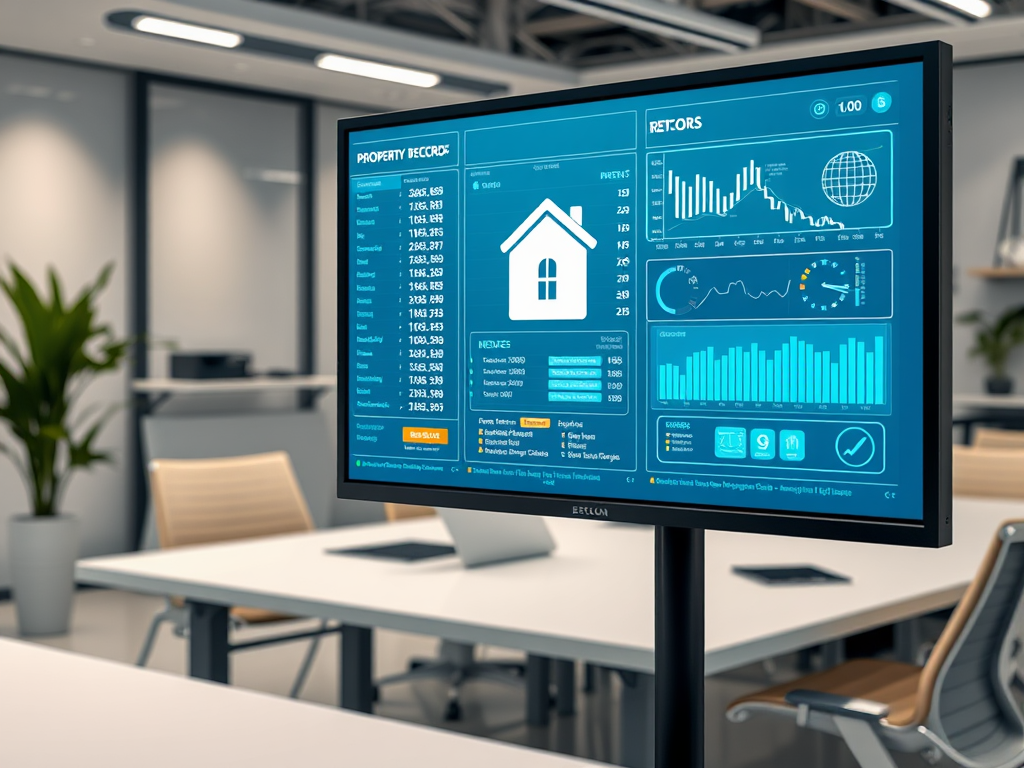Technology has revolutionized various industries, and the real estate sector is no exception. From online listings and virtual tours to blockchain and artificial intelligence, the integration of advanced technologies has streamlined real estate transactions and enhanced user experiences. This transformation has not only improved efficiency but also increased transparency and accessibility, fundamentally changing how buyers and sellers interact. In this article, we will explore the various technologies that are modernizing real estate transactions, highlighting their benefits and implications for the industry.
Streamlining the Buying and Selling Process

One of the most significant impacts of technology on real estate transactions is the way it streamlines the buying and selling process. Gone are the days of tedious paperwork and prolonged negotiations. Now, users can leverage various platforms to facilitate nearly every aspect of the transaction. The following technologies play crucial roles in this modernization:
- Online Listings: Real estate websites aggregate millions of listings, enabling buyers to browse and filter properties based on their preferences.
- Digital Marketing: Utilizing social media and targeted ads helps sellers reach potential buyers more effectively.
- Virtual Tours: High-quality video walkthroughs allow potential buyers to explore homes remotely, saving time and effort.
- Electronic Signatures: Documents can now be signed online, drastically speeding up the closing process.
Enhancing Transparency and Trust

Transparency has been a perennial challenge in the real estate industry. However, technology has introduced tools that foster trust and clarity throughout transactions. For example, property history reports can now be easily accessed through online platforms, giving potential buyers crucial information about previous ownership, renovations, and any legal issues. Moreover, blockchain technology provides a secure way to record property transfers. Here’s how technology enhances transparency:
- Access to Comprehensive Property Data: Buyers can view comprehensive background checks on properties and owners.
- Smart Contracts: These self-executing contracts can automate and enforce agreements between parties, reducing the probability of disputes.
- Reduced Fraud: Blockchain technology encrypts sensitive information, making fraudulent activities less likely.
Artificial Intelligence and Data Analytics
Artificial Intelligence (AI) and data analytics are transforming the way real estate professionals operate. AI-powered tools analyze vast datasets to reveal market trends, helping investors make informed decisions. Predictive analytics can determine which properties are likely to appreciate or depreciate, aiding buyers and sellers alike. Moreover, chatbots enable real estate agents to provide immediate responses to queries, enhancing customer service. The benefits of AI and analytics include:
- Improved Market Insights: AI assessment of market conditions allows for better pricing strategies.
- Enhanced Customer Engagement: Instantaneous solutions to inquiries through chatbots promote user satisfaction.
- Risk Assessment: Predictive analytics provides a deeper understanding of potential investment risks.
In today’s fast-paced world, mobile technology is essential. Most potential buyers use mobile devices to research properties, schedule viewings, and communicate with agents. Real estate apps are advantageous as they provide users with on-the-go access to listings and information. Additionally, these mobile platforms often include features such as augmented reality, allowing users to visualize properties in a unique way. The accessibility provided by mobile technology offers the following advantages:
- Convenience: Users can explore listings without being bound to a computer.
- 24/7 Availability: The real estate market is always accessible, allowing users to review listings at any time.
- Instant Notifications: Users receive immediate alerts for price changes or new listings in their desired areas.
Conclusion
The integration of technology into real estate transactions has undeniably modernized the industry, making the buying and selling process more efficient, transparent, and user-friendly. As homeowners expect increasingly sophisticated services, real estate professionals must adapt to these changes. Embracing technological advancements not only enhances customer satisfaction but also positions agents and brokers to compete effectively in a rapidly evolving market. As we look to the future, the continuous innovation in this sector promises to further transform real estate transactions, making them even more streamlined and accessible.
Frequently Asked Questions
1. What technologies are most influential in modern real estate transactions?
Technologies such as online property listings, virtual tours, blockchain, and artificial intelligence are significantly shaping modern real estate transactions.
2. How do virtual tours benefit buyers?
Virtual tours allow buyers to explore properties from the comfort of their home, saving time and enabling them to shortlist options more effectively.
3. Can blockchain technology reduce fraud in real estate?
Yes, blockchain technology encrypts transaction data, minimizing the risk of fraudulent activities associated with property ownership and transfer.
4. What role do mobile apps play in real estate?
Mobile apps provide convenience by allowing users to browse listings, schedule viewings, and communicate with agents anytime, anywhere.
5. How can data analytics aid real estate investors?
Data analytics can provide insights into market trends and property values, helping investors make informed decisions about buying or selling real estate.
